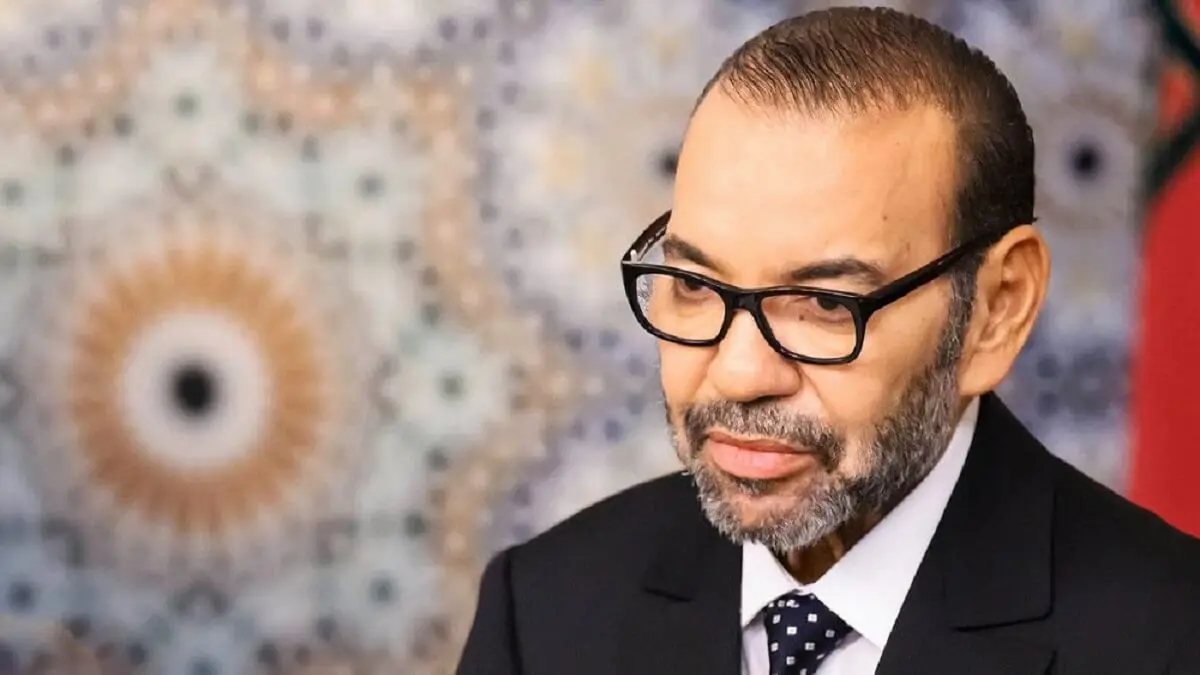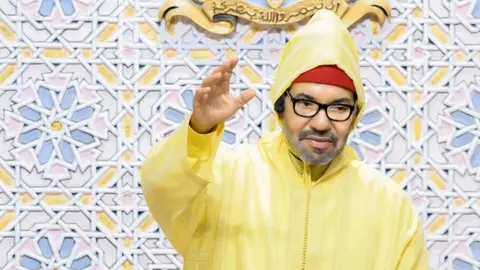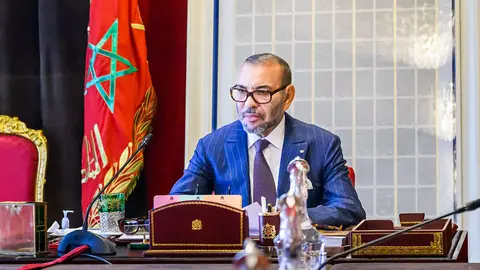Neither victor nor vanquished, or the diplomacy of thinking for others

- Saving face
- Small victories
- Image management
- No winners, no losers
- Breaking the deadlock... turning the page
It is precisely this moral strength, based on respect, responsibility and the will to overcome tensions, that inspired the Royal Speech on the occasion of the Throne Day.
Saving face – that is, the image, honour or credibility of an actor – is a fundamental challenge in international relations. Not only do states seek to avoid losing face in order to maintain their position and influence, but they must also be careful not to humiliate or belittle their interlocutors during diplomatic negotiations. This dual concern is recognised as a key element of diplomatic effectiveness and stability in international relations.
In what sense is saving face a crucial challenge for political actors involved in international relations?
It is important to note that when we talk about the concept of 'face' in international politics, we are primarily concerned with the crucial issue of the status and credibility of the actors involved, whose recognition and respect determine their influence and legitimacy on the world stage. In other words, losing face often equates to losing status, reputation or the ability to be taken seriously, which can reduce a state's influence and even the stability of its government.
An emblematic example of the importance for state actors of avoiding losing face can be found in the Cuban missile crisis, when the fate of the world was in the hands of two men (the two Ks, as they were called), Kennedy and Khrushchev. Both sought ways to back down without losing face on the international stage and, above all, before their own people. In discreet negotiations, Kennedy agreed to secretly withdraw US missiles from Turkey in exchange for the withdrawal of Soviet missiles from Cuba, thus allowing Khrushchev to present this resolution as a success without feeling humiliated. This compromise helped save face for both leaders.
Saving face
It should be noted in the same vein that saving face in international relations involves breaking the deadlock under a logic of ‘no winners, no losers’, so that the dignity and honour of the adversary are respected, thus opening the way to negotiation and reconciliation without humiliation.
In fact, saving face means offering the other party an honourable way out, which is essential for them to agree to engage in dialogue or reach a compromise. This prevents the adversary from feeling crushed, rejected or defeated, which could lead to a stance of rejection, blockage or escalation of the conflict. In other words, when it is elegant and refined, diplomacy plays a fundamental role in the management of international relations by providing a common reason for dialogue, opening up perspectives and offering a framework for safeguarding peace despite the complexity of disagreements.
Conversely, failing to take into account the dignity of one's adversary in international relations can lead to an increased risk of escalation and conflict. Acts perceived as humiliating can exacerbate conflicts, generate disproportionate reactions and hinder compromise. New geopolitical thinking suggests that, in relations between nations as well as between individuals, humiliation can lead to irrational behaviour and unleash endless conflicts. It should not be forgotten in this context that Algerian President Ben Bella's cry of bitterness and shame, ‘They have humiliated us, oh brothers, they have humiliated us,’ was deeply engraved in the collective memory of Algerians for generations. It is therefore crucial to avoid making the adversary feel humiliated, but it is also essential to re-establish dialogue while the party experiencing that feeling of humiliation is willing to engage in discussion.
Not humiliating one's adversary is undoubtedly a sign of moral strength that favours a non-violent strategy aimed at preventing a spiral of hatred and promoting a climate conducive to the peaceful resolution of conflicts. It is precisely this moral strength, based on respect, responsibility and the will to overcome tensions, that inspired the Royal Speech on the occasion of the Throne Day, reflecting a sincere commitment to reach out to the brotherly people of Algeria, without humiliating or compromising the dignity of the parties. When His Majesty King Mohammed VI affirms that ‘our unwavering commitment to the policy of extending a hand to our brothers in Algeria stems from our deep conviction regarding the unity of our peoples and our common ability to overcome this unfortunate situation’ and especially when he advocates ‘a consensual solution that saves face for all parties, where there are no winners or losers’, the King inscribes the need to save face for the other in a double register, both ethical and strategic.
On the ethical level, his approach is based on a moral force that seeks to reach out without humiliating or compromising the dignity of the other. This attitude reflects a sincere commitment to peace and reconciliation, based on respect for the other and the respectful management of their sensitivities. On the strategic level, this approach makes it possible to establish a climate of trust conducive to dialogue and lasting cooperation, while avoiding conflicts caused by loss of face or public humiliation. By carefully protecting the image of his adversary, the King is acting in accordance with a diplomatic logic geared towards stability and the peaceful resolution of the dispute with Algeria. Thus, the fundamental message on the Sahara issue in the Royal Speech combines an ethical impulse in favour of dignity and mutual respect with a realistic strategic vision, in which saving face is an essential lever for moving towards peaceful and consensual solutions, while safeguarding the interests and credibility of each party.
Small victories
The history of international relations is full of examples illustrating how, in delicate negotiations, each party is often forced to offer or accept limited concessions or ‘small victories’ in order to save face and thus maintain a framework conducive to dialogue and peaceful conflict resolution. To cite just one example, let us mention the US attacks on several Iranian nuclear sites in June 2025. Iran had responded by launching a missile attack on the US military base at Al-Udeid in Qatar, the largest US base in the Middle East, near Doha. This Iranian attack, although presented as a direct response, can also be interpreted as a symbolic ‘small victory’ offered by the United States to Iran to allow it to preserve its dignity without provoking further escalation.
Several elements point to a kind of tacit agreement or complex strategic calculation surrounding this response. First, the US base had evacuated its military aircraft before the attack, reducing damage and thus avoiding a more brutal escalation. Second, according to several sources, Iran had previously informed the Qatari authorities in order to limit civilian casualties. This supposed response allowed Iran to save face by showing that it could respond militarily without provoking a real open conflict, and the United States to avoid an uncontrolled escalation.
Thus, although not a ‘victory’ in the classic sense, the fact of tolerating or not preventing this limited attack on its base could be perceived as a strategic concession by the United States, allowing Iran to ‘save face’ in this context of major confrontation. This illustrates the complexity of what constitutes a ‘small victory’ in high-intensity conflicts, where each side seeks to combine force, mutual respect and image management.
Voluntarily conceding a few small ‘victories’ to the adversary is, in fact, a deliberate and intelligent strategy to allow them to save face. For a strategic state, it is not only a question of preserving its own face, but also of taking care of the other's, especially in an increasingly transparent world where pressure from public opinion and the international media is constantly growing. Therefore, concern for saving the other's face is not just a matter of courtesy, but a fundamental factor in international negotiations. The art of diplomacy consists of balancing the preservation of one's own image and that of the other, in order to negotiate without humiliating and to obtain viable solutions. This approach favours the stabilisation of relations and avoids sudden breakdowns resulting from confrontations in which each party would seek at all costs to promote its image and appear as the absolute ‘winner’.
Image management
Image management plays a fundamental role in the resolution of international conflicts. It touches on the core notion of ‘face’ and, in the case of the Throne Speech, perfectly structures the policy of outreach undertaken by His Majesty the King towards Algeria, with the aim of opening a new phase of dialogue while protecting the dignity of both parties. The importance of image in this approach lies in sending a strong signal of goodwill. By extending a hand to Algeria in a public and solemn manner, King Mohammed VI is not only making a political proposal, but also constructing a positive narrative that invites the overcoming of historical tensions. It also consists of giving the neighbouring country the opportunity to save face, that is, to respond positively without being forced to acknowledge guilt or weakness, thus facilitating the resumption of dialogue without humiliation.
The policy of the ‘outstretched hand’, as expressed by Mohammed VI, is not only a message of openness, but also an image and perception management strategy aimed at establishing a less conflictual climate. This strategy is based on the implicit recognition that, in order to resolve deep-rooted conflicts, not only concrete concessions are needed, but also delicate management of sensitivities related to dignity and face, a factor that is often decisive in the success of lasting reconciliation.
No winners, no losers
In his Throne Speech, the King of Morocco emphasised a balanced and conciliatory approach to the Sahara conflict, stating that there should be no winners or losers. This phrase sums up a fundamental principle for the peaceful resolution of disputes: the search for a solution in which none of the parties feels humiliated, defeated or subjected to unilateral imposition. The principle of ‘no winners, no losers’ thus implies a break with the classic logic of confrontation, respect for the dignity of all parties, the search for consensus and dialogue, and the sustainability of the agreed solution.
In this way, the Royal Speech brings to the fore an ideal of justice and legality that goes beyond the balance of power or partial victories. It invites us to build a future based on respect, compromise and shared dignity, which is particularly relevant in contexts of territorial, political or social conflict where the legitimacy of the process is as important as its outcome.
The ‘no winners, no losers’ strategy eloquently embodies the genuine desire not to seek total domination or the humiliation of the other in the Sahara conflict, but rather to devise a solution that, while reinforcing Moroccan sovereignty over the Saharan provinces, recognises the interests and dignity of each party. This stance, which is both pragmatic and ethical, promotes de-escalation, future cooperation and a lasting solution to the crisis.
Adopting a stance of strategic and empathetic understanding of the position, the interests and motivations of the other state or political actor, even if perceived as an adversary or rival, constitutes a form of altruistic diplomacy that consists of understanding the thinking and interests of the adversary, anticipating their actions, limiting the risks of open conflict and promoting the construction of more balanced relations, avoiding denial or rejection of the other, which can lead to dead ends or escalation.
Breaking the deadlock... turning the page
King Mohammed VI's speech on 29 July 2025, with his proposal for reconciliation ‘without winners or losers’, perfectly illustrates the political dynamic of thinking for the adversary, in this case Algeria, allowing it to break the deadlock without humiliation. By calling for a reconciliation that turns the page on the Sahara conflict, while at the same time reinforcing the Moroccan position, His Majesty the King seems to be adopting a strategic stance that seeks to preserve Algeria's dignity through a solution without winners or losers, avoiding the imposition of a framework in which Algeria is perceived as completely defeated or excluded, which could fuel a lasting deadlock.
Furthermore, this royal strategy consists of implicitly recognising Algeria as an unavoidable player, even though Morocco considers Algiers to be promoting separatism; inviting it to reconciliation indicates that it is willing to recognise it as an important political partner, rather than isolating or completely demonising it. The Royal Speech thus favours a pragmatic way out of the crisis, creating the conditions for a lasting compromise and reiterating that an outstretched hand can reduce mistrust and encourage constructive dialogue, which is essential for regional stability.
Thus, diplomacy of thinking for the other corresponds, in my view, to a prudent and respectful approach that consists of thinking for one's adversary, considering their reputation and sensitivities, while anticipating what would be good or acceptable for them. It is a strategic and ethical capacity that enriches political understanding, a courageous choice that involves sincere attention to the dignity and interests of the adversary, a perspective of high political maturity where reason and prudence guide action in a context of conflict and tension, an advanced form of political virtue, indispensable for peaceful and constructive international relations.
It should be remembered that diplomacy that consists of thinking for the other is not exactly a common practice in international relations; it is an exclusive privilege of the greatness of visionary kings and exceptional political leaders, capable of demonstrating wisdom, empathy and generosity in order to build lasting and peaceful relations between states and to build solid bridges between peoples.



